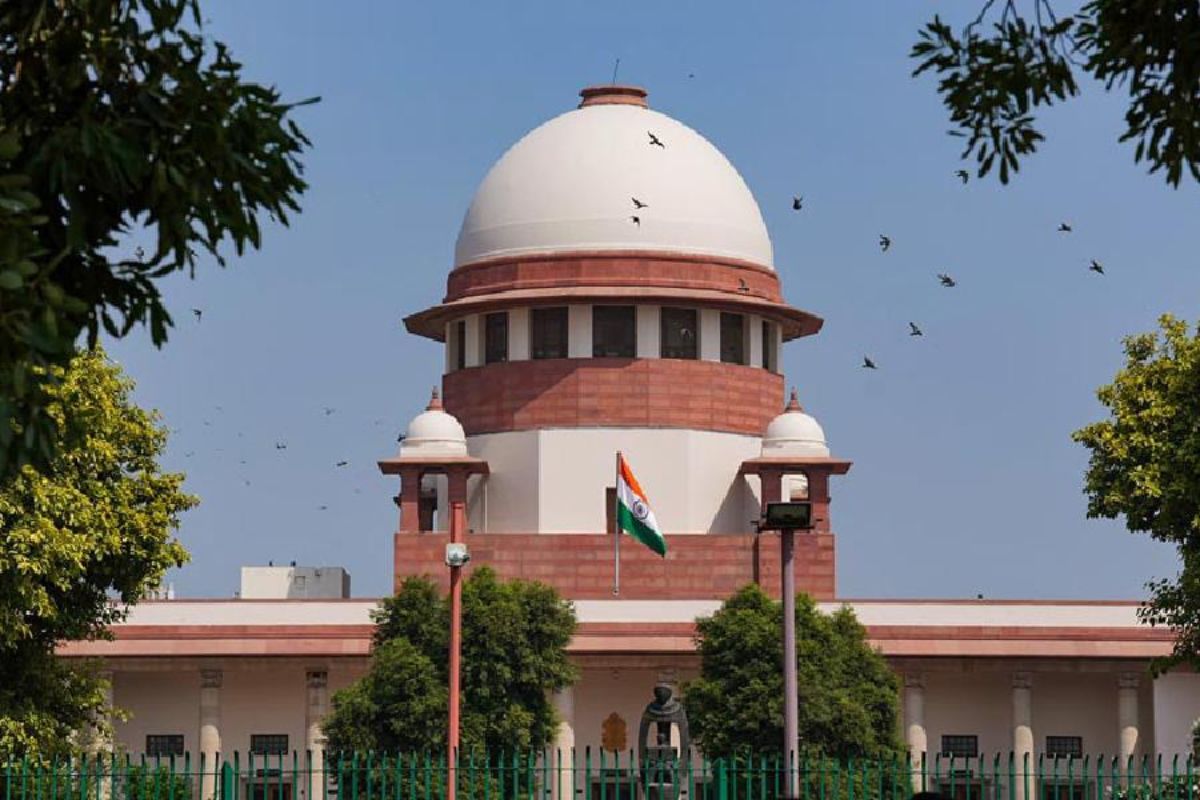Visually impaired eligible for appointment in judicial services: SC
In an important judgment, the Supreme Court on Monday held that visually impaired candidates are eligible to participate in selection for the posts under the judicial service
Defending the electoral bond scheme, Solicitor General Tushar Mehta, appearing for the central government, said it was a norm that the ruling party gets a major chunk of donations.

SC quashes proceedings against Karnataka Dy CM Shivakumar in PMLA case
The Centre on Wednesday told Supreme Court that the ruling party at the Centre gets the larger share of political funding by corporates, and electoral bonds were an instrument to infuse clean money in politics.
Defending the electoral bond scheme, Solicitor General Tushar Mehta, appearing for the central government, said it was a norm that the ruling party gets a major chunk of donations.
Advertisement
To this, Chief Justice D Y Chandrachud, heading a five-judge constitution bench also comprising Justice Sanjeev Khanna, Justice B R Gavai, Justice J B Pardiwala and Justice Manoj Misra asked, “Why is it the norm that the ruling party gets the most money? Is it an expectation of the donors?”
Advertisement
Stating that “they are not charity driven”, Mehta said the presence of a powerful leader with a large cadre-based party is conducive for the growth of business.
During the course of the arguments, CJI Chandrachud suggested that if you want to have a scheme and a level playing field, all these donations should get to the Election Commission which in turn will be distributed amongst the political parties.
In that situation nothing will come and everything will be in cash, the Solicitor General responded to the suggestion.
The court said, “That shows us the motivation for these donations.”
The bench also questioned the Solicitor General on his argument of “selective confidentiality” that there was no victimization or retribution of donors as State Bank of India (SBI) was alone privy sources of the funding of electoral bonds.
CJI Chandrachud asked Mehta about the statutory obligation on SBI to maintain that confidentiality. “You can maintain confidentiality. We take your point that it is designed to ensure that people are not victimized,” he said.
However, Justice Khanna said it is easier for the party in power to get the information on donors of contributing to opposition parties, but they cannot know the donors of the ruling party.
Senior advocate Vijay Hansaria told the bench that transparency in political funding by corporates leads to accountability and credibility resulting in public faith in the system contributing to a healthy democracy.
On the other hand, he said, the opaque electoral bond scheme operates behind the iron curtain – contrary to the avowed objectives of transparency in electoral funding – resulting in the improper influence of money powers and paving way for influencing policy making. This results in the loss of public trust in governance, he said.
CJI Chandrachud said, “All these contributions are regulated by statute. Something conferred by a statute, can be taken away by the statute. They are enabling provision and they are amenable to be tested on the touchstone of Article 14.”
The constitution bench is hearing a batch of petitions including one by NGO Association for Democratic Reforms, challenging the electoral bond scheme, which allows anonymous funding to political parties, which was brought as a money bill – part of the Finance Acts of 2016 – 2017.
Electoral bond is an instrument in the nature of a promissory note or bearer bond which can be purchased by any individual, company, firm or association of persons, provided the person is a citizen of India or body is incorporated or established in India. The bonds are issued specifically for the purpose of funding political parties.
Advertisement